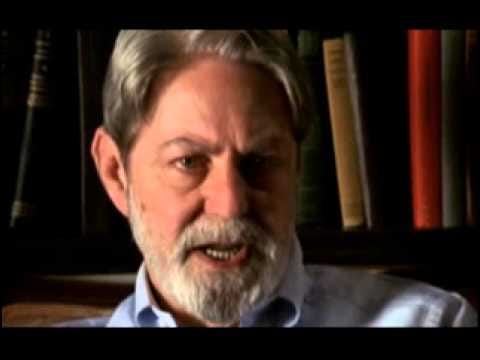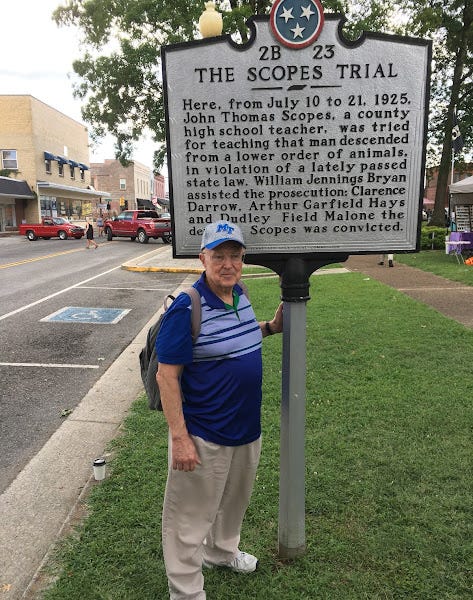Continuing reflections caught at daybreak, in a WJ-at-Chocorua ("doors opening outward") state of mind... https://philoliver.substack.com (Up@dawn@Substack)... @osopher@c.im (Mastodon)... @osopher on Threads & IG
Monday, July 31, 2023
Knowing vs. understanding
Saturday, July 29, 2023
Friday, July 28, 2023
Thursday, July 27, 2023
Give him hell, Harry
...
In the film Truman calls Oppie a "crybaby" but the book's account sounds more like Harry:
"Afterwards the President was heard to mutter, "Blood on his hands, dammit, he hasn't half as much blood on his hands as I have. You just don't go around bellyaching about it." He later told Dean Acheson, "I don't want to see that son-of-a-bitch in this office ever again."
...
We’ve got a new version of McCarthyism going on these days.
“Einstein… was truly alarmed by McCarthyism. In early 1951 he wrote his friend Queen Elizabeth of Belgium that here in America, “The German calamity of years ago repeats itself: People acquiesce without resistance and align themselves with the forces of evil.”
― Kai Bird, American Prometheus: The Triumph and Tragedy of J. Robert Oppenheimer
Wednesday, July 26, 2023
A New Generation of Robots Seems Increasingly Human
Monday, July 24, 2023
‘Oppenheimer’
'Oppenheimer' Review: A Man for Our Time
Christopher Nolan's complex, vivid portrait of J. Robert Oppenheimer, the "father of the atomic bomb," is a brilliant achievement in formal and conceptual terms.
"Oppenheimer," Christopher Nolan's staggering film about J. Robert Oppenheimer, the man known as "the father of the atomic bomb," condenses a titanic shift in consciousness into three haunted hours. A drama about genius, hubris and error, both individual and collective, it brilliantly charts the turbulent life of the American theoretical physicist who helped research and develop the two atomic bombs that were dropped on Hiroshima and Nagasaki during World War II — cataclysms that helped usher in our human-dominated age... Manohla Dargis
"Well, do THAT then"
That’s what Mr. Rolen told his teenage son, who was doubting his ability to score on the basketball court but who also admitted that he could hustle, play strong defense, work harder… Simple words Scott credits with motivating him thoughout his subsequent professional MLB career. Touching speech.
My little Rolen bobblehead, already meaningful to me because Older Daughter gifted it many years ago, now means even more.
And, I’m now itching to get back to Cooperstown. We were there in 2001, just before 9/11. Younger Daughter doesn’t recall begging, in one of the shops on Main Street, for a stuffed bear called Edmonds. (The bear was named for Pujols’ and Rolen’s MV3 teammate Jim, who might get into the Hall for his stellar centerfield play—one in particular—not, though, for his broadcasting. Sorry, Edmonds.)
I’ll plan to go again in ‘27, right after retiring from academia. That should be Albert’s (and Yadi’s?) induction year. What a lovely intro Albert gave Scott yesterday. There should be a wing devoted to good guys… and another for Pete Rose and the steroids stars.
Friday, July 21, 2023
"ethicists—those dinosaurs in philosophy departments"
"I asked Lucas if he had seen an article in the paper a few days ago, one about a certain experiment that had resuscitated some dead mice. "Those Lazarus mice, right?" he answered. "Yeah, I read about them. My colleagues in the philosophy department are pretty worked up about it." "Why the philosophy department?" "It's the ethics behind this, it's all new and has caught them off guard. The geneticists, the biologists, they've seen this coming for a while, ever since we mapped the human genome." Lucas took another long pull on his coffee, which he clutched between both hands. "What was that? Five years ago? If you can map out genetic structures, then you can map out cellular ones. Which means it isn't so big a step to go from engineering to re-engineering cells. The building blocks have existed for years. Someone's finally put it all together. Geneticists, cytogeneticists, even oncologists, most weren't too surprised to hear about the mice. It's the ethicists—those dinosaurs in philosophy departments—they're the ones who hadn't been watching. They've got no idea how to respond. One day you're resurrecting mice, the next day people. What are the ethical implications? They don't have a clue.""
* "I'd chosen to study the Civil War and Foote had become my fixation. On C-SPAN Book TV, in a July 26, 1994, interview, he had said, "In the Civil War, there's a great compromise as it's called. It consists of Southerners admitting, freely, that it's probably best that the Union wasn't divided. And the North admits, rather freely, that the South fought bravely for a cause in which it believed. That is a great compromise and we live with that and it works for us." How, at times, I wished I could un-see that clip. It had become the contentious seed from which my tangled work germinated. I had become obsessed with the role of compromise in the sustainment of American life, as well as our relatively recent departure from it as an American virtue. I had my theories on what contributed to our current plague of polarization: gerrymandering, the shifting media landscape, campaign finance laws; however, identifying the causes wasn't enough, it would do nothing to ease our grim national mood, which I would have diagnosed as rage-ennui."
— Halcyon: A novel by Elliot AckermanBarbara Kingsolver Thinks Urban Liberals Have It All Wrong on Appalachia
The Pulitzer Prize-winning author Barbara Kingsolver talks about writing "the great Appalachian novel."
When Barbara Kingsolver set out to write her latest novel, "Demon Copperhead," she was already considered one of the most accomplished writers of our time. She had won awards including the Women's Prize for Fiction and a National Humanities Medal, and had a track record of best-selling books, including "The Poisonwood Bible" and "Unsheltered." But she felt there was one giant stone left unturned: to write "the great Appalachian novel."
...
Ezra Klein podcast
Thursday, July 20, 2023
Wednesday, July 19, 2023
The sentiment of connection and continuation
"I want these road shows to touch people and send them away happy." Clearly they do. And that's a fine sentiment, to want and work for the happiness of strangers... especially in your 81st year, a time when most in our culture settle for irrelevance and consignment to the sidelines.
Sentiment, after all, is just a feeling of connection and care; and sentiment for the past is just a feeling of gratitude for the journey that brought us to where we find ourselves here and now (when we might have been nowhere, no how).
Looking forward to seeing you in September.

Rilke on death
Tuesday, July 18, 2023
Monday, July 17, 2023
An admirable legacy of BS
"...The essay was originally published in the journal Raritan in 1986, but it was not popularized until nearly two decades later, in January 2005, when Princeton University Press repackaged it as a small, spaciously lined 80-page book. It was an unexpected commercial hit, becoming a No. 1 New York Times best seller. Soon Professor Frankfurt was making television appearances on "60 Minutes," the "Today" show and "The Daily Show With Jon Stewart."
The book's popularity seemed to be fueled in part by the recent re-election of President George W. Bush, many of whose critics viewed his administration, with its purported dismissal of what one Bush aide called the "reality-based community," as exemplifying the very blitheness about truth that Professor Frankfurt had described..."
https://www.nytimes.com/2023/07/17/books/harry-g-frankfurt-dead.html
Harry Frankfurt (1929-2023)
https://www.threads.net/t/Cu0MrvSLazY/?igshid=MTc4MmM1YmI2Ng==
Thursday, July 13, 2023
Tuesday, July 11, 2023
Back to Dayton
http://dlvr.it/Ss2Qx1
Monday, July 10, 2023
Bye, Frank?
http://dlvr.it/SrzXh0
Sunday, July 9, 2023
Thursday, July 6, 2023
Aristotle’s Rules for Living Well
—Nikhil Krishnan
Give it up (for Nothing, for 3 weeks)
"…At the end of the previous academic year she had been exhausted and threatened to 'give up philosophy'. Iris had prescribed complete rest: 'If you gave it up completely for say three weeks (and you can do that in the summer) that would surely do the trick. I know how sick one can get–I hope you have less teaching next term. Take it gently, old sweetheart–carry on with Nothing if possible. (Not meaning néant of course which is a serious matter, but just old-fashioned Nothing).'"
— Metaphysical Animals: How Four Women Brought Philosophy Back to Life by Clare Mac Cumhaill, Rachael Wiseman
https://a.co/4iGrfMS
Tuesday, July 4, 2023
Saturday, July 1, 2023
He did it for his kids
Part of his reluctance to share his theory of evolution was that he was not known as a biologist, and he assumed that no one would take such a radical theory seriously from such an amateur. In fact, for most of his early career, he was known as a geologist. He only made his name as a biologist in the early 1850s when he wrote an influential study of the sexual behavior of barnacles.
He was still reluctant to publish his ideas, though, because he didn't want to create a controversy by offending anyone's religious beliefs. Atheism was a crime punishable by prison at the time, and Darwin feared that people would object to the idea that God hadn't created each creature individually. When he finally told one of his friends about his theory of evolution, he said it was like confessing a murder.
But then, in 1851, his oldest and favorite daughter, Annie, died of typhoid, and suddenly Darwin began to worry about the future of all his children. He was terrified that they would all have health problems and that they might not be able to provide for themselves. So, to help assure his children's well-being, Darwin began writing a book about evolution, which he hoped would become a scientific classic. He had kept notes on his theory for 20 years, but he began to run new experiments to test his ideas. He experimented with seeds in seawater, to prove that they could survive ocean crossings, and he raised pigeons to observe the traits they inherited from their parents.
Darwin often worked on his book seven days a week, and he began to suffer from health problems of his own. He had struggled to complete a quarter of a million words when, on June 18, 1858, he learned that a man named Alfred Russel Wallace was about to publish a paper about a similar theory. In order to get credit, Darwin had to present an extract of his work to a scientific society in two weeks.
Almost the same day he received that news, his household was struck by an epidemic of scarlet fever. His children and several nursery maids came down with the disease. Most everyone recovered, but Darwin's youngest son, Charles, died. And so it was that Charles Darwin wasn't even in attendance when his theory of evolution was first presented to a public audience on this day in 1858. He was at home, grieving the death of his son. But his theory would go on to become the basis of all modern biology. WA
https://open.substack.com/pub/thewritersalmanac/p/twa-for-saturday-july-1-2017?r=35ogp&utm_medium=ios&utm_campaign=post
Telling advice from old Strunk
https://open.substack.com/pub/thewritersalmanac/p/twa-for-saturday-july-1-2017?r=35ogp&utm_medium=ios&utm_campaign=post













